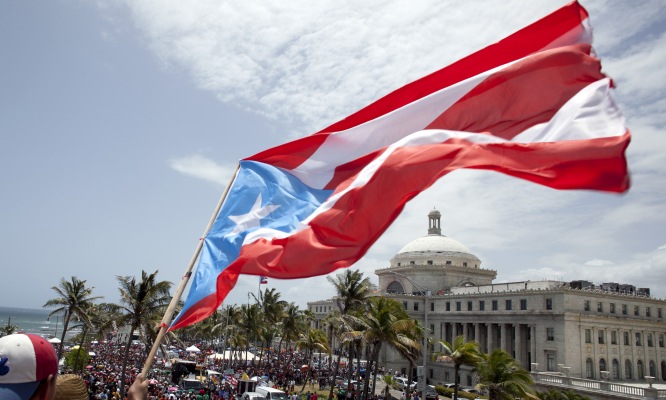See the original article in Spanish published July 7th 2015 in La Izquierda Diario Mexico
Alejandro García Padilla, Puerto Rico’s president and member of the Popular Democratic Party
(PPD), said that the public debt is unpayable. García Padilla’s report was accompanied by the declarations of economist Anne O. Krueger, in which she paints a terrible economic picture. According to the government, a series of “reforms” must be applied and they mean major changes in the economic management of the territory.
Economists from the International Monetary Fund (IMF ) express in their report that Puerto Rico could be on the verge of default and suggested that the territory “must implement structural reforms; such as, cuts in social benefits and labor costs.”
The PPD asked Washington for a restructuring of the public debt under the code of “bankruptcy,” because the 73 million dollars are unpayable. However, despite the great difficulties of paying bondholders in the United States,on July 1 the government of PPD paid nearly 1,900 million dollars before the expiration of some bonds.
According to the newspaper El Pais , the scenario is similar to that of Greece; “high tax evasion, problems of corruption and lack of transparency.”
García Padilla wants to declare bankruptcy as did Detroit in 2011. The Obama Administration has stated that it will not bail out the island.
The United States recorded a decrease in its gross domestic product between January and March 2014. So far in 2015, the US economy decreased by 0.2 %, and according to the newspaper El Financiero the economy is on “stand by”. The Federal Reserve has not yet reported a “recovery” during this new quarter.
PPT leader, said that his party maintains that there should be a “renegotiation of the foreign debt.” This renegotiation assumes that the public debt is “legitimate” and can be paid “but in different ways.”
Yet what is expected for the poor and working people of Puerto Rico is more hardship, adjustments and financial austerity cuts. A column of the New York Times on the situation of Puerto Rico anticipates the measures likely to be adopted by the PPD government: the privatization of electricity, increasing new flexible policies for private investment, encouraging private companies to invest in the public sector and cuttings on social and public spending.
But in recent years, the subjectivity of some sectors changed and started questioning the model imposed in Puerto Rico. In 2010, a strong student movement arose,challenging the privatization of public education. This movement that was part of the wave of youth mobilization worldwide, along with demonstrations in Chile, Quebec and the Occupy movement in the U.S. The student movement was at the center stage in Puerto Rico and had a strong national support. This struggle triumphed and the implementation of quotas was not adopted.
The teachers went on strike in January 2015 against the new amendment to the pension law. The law passed in 2014 requires active teachers aged 55 and 30 to receive a lower pension and retirement age increases.










